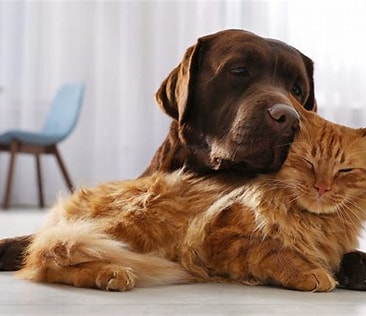Essential Pet Care Tips for Autumn and Winter: A Veterinarian’s Guide
- Twin Tails
- Oct 16, 2025
- 3 min read
As the weather shifts from the crisp days of autumn to the chilly depths of winter, our pets—just like us—feel the changes. These seasonal transitions can bring specific health challenges, and as a veterinarian, I often see a spike in preventable conditions during this time of year. Whether you’re a dog lover, a cat parent, or caring for a smaller companion, here are some essential tips to help your pet stay healthy, warm, and happy throughout the colder months.

1. Protect Your Pet from Cold Weather
While some pets, like Huskies or Maine Coons, are built for colder weather, many domestic pets are not. Short-haired breeds, older animals, and those with underlying health conditions can struggle to regulate their body temperature.
Veterinary Tip:If it’s too cold for you, it’s likely too cold for your pet. Limit outdoor time in very low temperatures, and consider pet-safe clothing like sweaters or jackets for dogs. Avoid keeping pets outside overnight in the cold, especially without adequate shelter.

2. Manage Pet Allergies and Dry Skin in Autumn
Autumn can bring mold spores, ragweed, and other allergens. As heating systems turn on in winter, dry indoor air can worsen itchy skin or coat problems.
Veterinary Tip:If your pet is scratching more than usual, has dry or flaky skin, or seems uncomfortable, it may not just be the cold. Regular brushing, a humidifier in dry environments, and omega-3 supplements (with your vet’s approval) can help.
3. Holiday Pet Safety: Foods and Decorations to Avoid
From Halloween treats to Christmas decorations, the fall and winter holidays are full of hidden dangers for pets.
Veterinary Tip:Chocolate, xylitol (found in sugar-free gum), grapes, raisins, and certain holiday plants (like poinsettias and mistletoe) can be toxic. Also, be cautious with tinsel, ribbons, and candles. If you suspect your pet has ingested something harmful, contact your veterinarian or an emergency clinic immediately.

4. Keep Your Pet Active and Fit Indoors During Winter
Colder months often mean less outdoor activity, leading to reduced exercise. Meanwhile, we humans may be tempted to share hearty meals and holiday treats with our pets.
Veterinary Tip:Obesity is a year-round concern, but it often worsens in winter. Stick to your pet’s regular diet, avoid table scraps, and find ways to keep them active indoors—short play sessions, puzzle toys, or indoor fetch can help.
ear-Round Flea, Tick, and Heartworm Protection
Many pet owners assume flea, tick, and heartworm prevention can be paused during winter. However, depending on your location, these parasites can still be a risk—especially in warmer or urban climates.
Veterinary Tip:Always consult your vet before discontinuing any preventative treatments. In many areas, year-round protection is recommended.
6. Winter Emergency Preparedness for Pet Owners
Winter storms and power outages can catch us off guard. Just as you prepare for your family, it’s essential to prepare for your pets.
Veterinary Tip:Create an emergency kit for your pet that includes food, water, medications, a blanket, and a copy of their medical records. Keep it stored in an easily accessible place.

Final Thoughts
Autumn and winter can be a cozy and joyful time with your pets—but only if we remain mindful of their changing needs. By taking a few proactive steps, you can ensure your furry companions stay safe, warm, and thriving all season long.
If you have any concerns about your pet's health this time of year, don't hesitate to consult your veterinarian. Prevention and early attention are the best ways to avoid more serious health issues.
Stay warm and take care—of yourself and your pets!




Comments